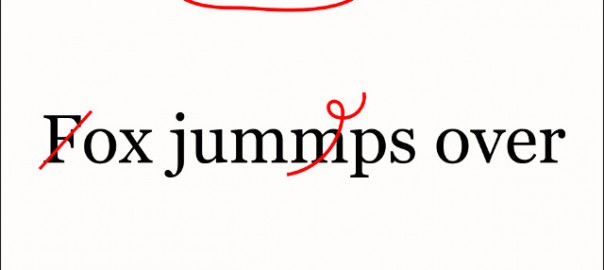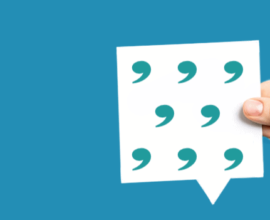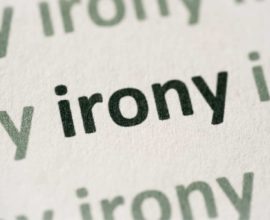The Importance of Proofreading
Contrary to what writers thing, proofreading is not an add on process for writing. It is an impotent step that allows you too go back to what ever you’ve written, read every line of youre text, and make any connections to the errors you’ve done while writing and fix them so your final draft is free of errors.
Something’s wrong with the text above, right? To be honest, this is how a rough draft of your book would look. When typing, your complete focus lies in transforming your thoughts into words and you seldom bother about the errors, typos, and other grammatical mistakes that you commit while writing. If you send the draft without proofreading, there are serious chances that your proficiency as a writer would be suspected. To eliminate that, you need to proofread your content before sending it out even to a friend of yours for a peer-review.
After proofreading, here’s how the paragraph would look:
Contrary to what writers think, proofreading is not an add-on process to writing. It is an important step that allows you to go back to whatever you’ve written, read every line of your text, make any corrections to the mistakes you’ve made while writing, and fix them so your final draft is free of errors.
Makes more sense? Great
Why Should You Proofread Your Text?
- Everyone makes mistakes. From J.R.R Tolkien to a school student writing an essay; no one can draft a perfect manuscript the very first time. To make sure you’re manuscript is worth considering for publishing and comprehensible, you must proofread your content.
- Proofreading allows you to make sure you’ve included everything you wanted to say or convey through your book.
- Proofreading brings to your attention any inconsistencies, words or sentences that are redundant, and fix sentences that require better structures
- It enables you to delete unwanted points or content that you feel would divert readers from the topic being discussed in your book.
- It shows that you are serious of what you’re doing and indicates your accountability.
- It allows you to spot serious typos and grammatical blunders which you could have missed if you haven’t proofread.
Okay, so what do I look for when proofreading?
When you sit down to proofread, check for the following:
- Typos
- Choice of words
- Spelling errors
- Grammatical errors
- Formatting
- Ambiguous sentences
- Inclusion or deletion of ideas you wanted to convey
Tips to Effectively Proofread your Content
Read it aloud
This is one of the most effective ways to proofread your content. Reading your content aloud will allow you to easily spot errors, and help you find ways to fix them.
Take some time off after you complete Your Book
This might seem a bit trivial, but this indeed works. Your mind needs to be fresh when you intend to look for errors in your content. So, it is necessary that you take a break for a couple of days so you can look at your text from a fresh perspective. If you start proofreading immediately after you finish writing, you’re most likely to overlook errors in your content.
Do not Rush
Never proofread with an intention of finishing it fast. Your eyes cheat you. The more you rush, the more the mistakes you’ll overlook. Read your text slowly, take your time, and complete your work.
When to Proofread Your Content?
Another thing you should know is that proofreading is not something you do once you finish writing alone. The process extends till the final copy of your book is published. In short, you have to proofread, when:
- You get your manuscript from your typesetter, to see if the layout is fine and that it has altered the text in any way.
- You receive it from your professional editor.
- The first copy of your book gets printed. Proofread the final copy of your book and approve it if it is fine. Your last look at the book is your reader’s first look.
Your writing says about you and if your text is full of errors that could have been avoided, it makes publishers suspect your lack of talent as a writer. You don’t want that to happen, right? Start proofreading your content.





